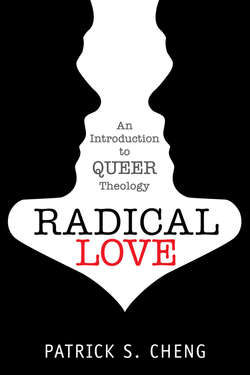Читать книгу Radical Love - Patrick S. Cheng - Страница 29
На сайте Литреса книга снята с продажи.
ОглавлениеHow did queer theology come into being? Although the term “queer theology” is fairly new, LGBT-positive theological works actually have been in existence since the mid-1950s. This chapter will review the evolution of queer theology over the last half-century. Note that the term “queer” is being used here in a broad sense; that is, it is being used as an umbrella term to describe theology by and for LGBT people.
In particular, this chapter will review four different strands in the evolution of queer theology: (1) apologetic theology, (2) liberation theology, (3) relational theology, and (4) queer theology. The first strand, apologetic theology, can be summarized by the phrase “gay is good.” Its primary purpose is to show that one can be both LGBT and Christian. The second strand, liberation theology, goes beyond mere acceptance and argues that liberation from the oppressions of heterosexism and homophobia is at the very heart of the gospel. The third strand, relational theology, centers upon the notion that God is found in the “erotic”—that is, in the midst of mutual relationship with another. The fourth and final strand, queer theology, challenges the notion that binary categories with respect to sexuality (for example, homosexuality vs. heterosexuality) or gender identity (for example, female vs. male) are fixed and impermeable.
It is important to note that these four strands of queer theology are not intended to divide the history of queer theology into distinct theological “eras.” Rather, they are roughly chronological ways of describing certain trends in the development of queer theology over the last fifty years. Furthermore, these four strands are not mutually exclusive. That is, any given work of queer theology may contain one or more of these strands. For example, certain books relating to transgender theology might be considered queer theology because they challenge essentialist and binary conceptions of gender. However, such books might also be considered apologetic theology to the extent that they are arguing that “trans is good” and that one can be both a transgender person and a faithful Christian.
